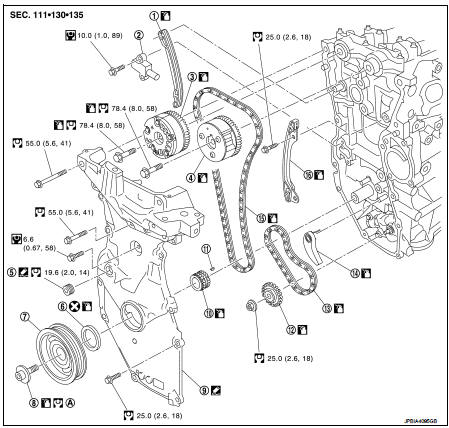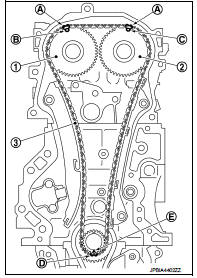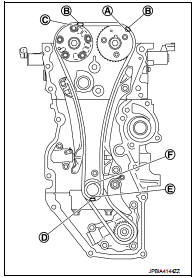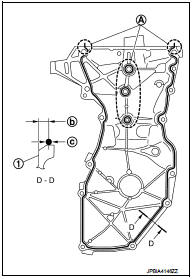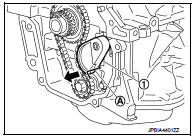Nissan Juke Timing Chain: The Crucial Replacement Guide Drivers Must Read
The Nissan Juke, with its distinctive styling and nimble handling, has carved a niche for itself in the compact SUV market. However, like any vehicle, it requires diligent maintenance to ensure optimal performance and longevity. One critical component that demands attention is the timing chain. This guide provides a comprehensive overview of the Nissan Juke timing chain, its importance, signs of wear, and the crucial aspects of replacement, ensuring your Juke continues to run smoothly for years to come.
Why is the Timing Chain So Important in Your Nissan Juke?
The timing chain, often referred to as the “heartbeat” of your engine, synchronizes the rotation of the crankshaft and the camshaft(s). This precise timing is essential for:
- Valve Operation: Ensuring the intake and exhaust valves open and close at the correct times, allowing for efficient air-fuel mixture and combustion.
- Piston Movement: Coordinating piston movement with the valve operation, preventing catastrophic engine damage (valve-to-piston contact).
- Engine Performance: Contributing to the engine’s power output, fuel efficiency, and overall responsiveness.
Unlike a timing belt, which requires periodic replacement, the timing chain is designed for a longer lifespan. However, it is not immune to wear and tear.
Recognizing the Signs of a Worn or Failing Timing Chain
Ignoring the warning signs of a failing timing chain can lead to severe engine damage and costly repairs. Be vigilant for these indicators:
- Rattling or Ticking Noises: A distinct rattling or ticking sound, especially during cold starts or idling, often originating from the engine’s front.
- Engine Misfires: Irregular combustion can result in engine misfires, causing the engine to run rough or hesitate.
- Reduced Engine Performance: Loss of power, sluggish acceleration, and decreased fuel economy are common symptoms.
- Check Engine Light Illumination: The check engine light may illuminate, often accompanied by diagnostic trouble codes (DTCs) related to camshaft or crankshaft position sensors.
- Metal Shavings in Oil: During oil changes, inspect the oil for the presence of metal shavings, a potential sign of chain wear.
If you observe any of these signs, it’s crucial to have your Nissan Juke inspected by a qualified mechanic as soon as possible.
The Timing Chain Replacement Process: What to Expect
Replacing the timing chain is a complex procedure that requires specialized tools and expertise. It’s generally recommended to entrust this task to a certified mechanic. Here’s a general overview of the process:
- Diagnosis and Assessment: The mechanic will diagnose the problem, confirm the need for replacement, and inspect other related components for wear.
- Component Removal: Components like the serpentine belt, radiator (potentially), and various engine covers will be removed to access the timing chain.
- Timing Chain Removal: The old timing chain, along with any associated tensioners, guides, and sprockets, will be removed.
- Component Inspection and Replacement: The mechanic will inspect all related components for wear and replace them if necessary. This often includes the water pump, oil pump, and seals.
- New Chain Installation: The new timing chain and related components will be installed, ensuring proper alignment and tension.
- Reassembly and Testing: All removed components will be reinstalled, and the engine will be tested to ensure proper operation.
Cost Considerations and Preventive Measures
The cost of a timing chain replacement can vary depending on factors like your location, the mechanic’s rates, and the specific parts required. However, you can expect to pay a few hundred to over a thousand dollars.
Here’s how to prolong the life of your Nissan Juke’s timing chain:
- Regular Oil Changes: Use the correct type of oil and adhere to the manufacturer’s recommended oil change intervals. Clean oil lubricates the chain and reduces wear.
- Proper Engine Warm-Up: Avoid high-revving the engine immediately after starting, especially in cold weather. Allow the engine to warm up properly.
- Avoid Aggressive Driving: Excessive acceleration and deceleration can put undue stress on the timing chain.
- Listen for Unusual Noises: Pay attention to any unusual engine noises and address them promptly.
Conclusion: Keeping Your Juke Running Strong
The timing chain is a critical component of your Nissan Juke’s engine, and its proper function is essential for performance and longevity. By understanding the signs of wear, seeking timely professional service, and practicing good maintenance habits, you can ensure your Juke continues to provide reliable service for years to come. Don’t delay addressing any suspected timing chain issues, as early intervention can prevent significant engine damage and costly repairs.
Frequently Asked Questions (FAQs)
1. How often should the Nissan Juke timing chain be replaced?
Unlike timing belts, timing chains are designed to last the life of the engine. However, they can wear over time. There is no set replacement interval, but it is crucial to monitor for the signs of wear and tear.
2. Can I replace the timing chain myself?
Replacing a timing chain requires mechanical expertise, specialized tools, and a strong understanding of engine mechanics. It is generally recommended to have a qualified mechanic perform this service.
3. What happens if I ignore the symptoms of a failing timing chain?
Ignoring the symptoms can lead to severe engine damage, including valve-to-piston contact, which can require a complete engine rebuild or replacement.
4. What is the best oil to use for my Nissan Juke to help prolong the life of the timing chain?
Consult your owner’s manual for the manufacturer’s recommended oil type and viscosity. Using the correct oil and adhering to the recommended oil change intervals is crucial for chain longevity.
5. How long does a timing chain replacement typically take?
The time required for a timing chain replacement can vary, but it typically takes a mechanic several hours to a full day to complete the job, depending on the complexity and accessibility of the engine.
